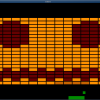Overdramatic twaddle
No, it’s nearly exactly correct.
Notice how the most correct advice has been simply to get your hands on and do it. Because at such a beginner level the amount of potential advice we could give is so overwhelming it is best to just summarize as, “Just do it.”
What would I do if I just learned how to use a hammer and maybe a saw and wanted to build a house?
I would just do it, starting perhaps with miniatures, like miniature programs.
there's no need for expertise in the entire language, there's not a company I've ever worked for that would permit you to use it all anyway. C only has 30 odd keywords, get your head around loops and decisions and pretty much you're on a running start. A modern ide's autocomplete holds your hand through any most of the more complicated parts.
No one said there needed to be expertise in the entire language and the number of keywords you know in a language are not what indicate how versed you are in that language. Loops are per-language syntactical sugar and an IDE’s auto-complete has nothing to do with making video games directly.
Making video games, regardless of language, requires knowledge of high-level concepts such as game loops, input-handling, etc.
My advice echoes the “just do it” crowd, but I would add that when I was such a beginner, barely just having learned if/else (not yet for, while, etc.), I made a number-guessing game in which the computer picked a random number and you had to guess it.
It’s total crap but it goes to show you how wide the range of “games” is and how little you actually need to know in order to make one.
From there I of course gradually made more and more complex games as I learned more of the language.
The point is you need to be in the mindset of, “Great, I have learned this and am now capable of performing loops, branches, comparisons, etc. What kind of game can I make out of this without asking others what kind of game I should make?”
On the one hand there are games so terribly simple that you never need to program anything but “Hello World” followed by nothing but games for the rest of your life.
On the other hand, if you have to ask, “What should I make?”, you don’t have the right mindset for learning—with such an array of things you could make, this is something you should be able to easily answer yourself.
L. Spiro








